A Wonky State Behaving Like Warrior State
In recent years, there has been a veritable deluge of books on Pakistan and all that’s wrong with that country. There have also been some books which have tried to argue, even if unconvincingly, that all is still not lost and that Pakistan is a very resilient state – ‘a hard country’, if you will – which could bounce back provided it gets some things right. The latter set of books are really more of an apologia for Pakistan and appear more like the academic version of the phenomenon known as ‘paid news’. The former set of books tend to deal more with the events and developments in and around Pakistan to explain what happened and why. TV Paul’s book “The Warrior State: Pakistan in the Contemporary World” breaks fresh ground by using political theory and concepts to delve into why Pakistan is what it is.
There is a lot in this very interesting, and even exciting, book on Pakistan that one can quibble over and disagree with. Apart from some of the conclusions, comparisons and theories that Prof. Paul, an Indian origin academic at the McGill University, tries to apply to Pakistan, the title of the book itself has been questioned. During a recent book discussion programme, Prof. Paul was candid enough to disclose that his original title was ‘Paradox of Pakistan’ but that the publisher wanted a more attractive, eye-catching and compelling title and hence ‘Warrior State’. Though Prof Paul does provide the theoretical and practical justification for this title throughout the book, Pakistan's description as a warrior state at best describes the outward manifestation of a psychologically disturbed state which perhaps is more appropriately describable as ‘a paranoid state’, ‘a pernicious state’, ‘a perverse state’, ‘a perfidious state’, ‘a predatory state’ and ‘a schizophrenic state’.
Indeed, in order to understand and make sense of how the Pakistani state thinks and acts, it is imperative to understand the Punjabi psyche, which political theory alone is perhaps ill-equipped to handle. Suffice out here to say that Punjab (on both sides of the Radcliffe line) is probably the region with the most feudal mindset in the entire subcontinent. Punjabis understand power and authority better than anyone else and kowtow to it with great alacrity. At the same time, they are quick to defy authority if they sense that they can do so with impunity. In that sense, they revel in anarchy, something that is so visible in Pakistan where no sooner than a new government assumes office that predictions start on how and when it will collapse. The concept of ‘jugar’ is also something that comes naturally to Punjabis. As a problem solving concept this is unexceptionable, but when applied to administration, foreign and security policies of the state as well as its strategic policy, it can easily lead to disaster. This is something that is so apparent in what is happening in Pakistan today, where the ‘jugar’ of using ‘non-state actors’ in pursuit of political and foreign and strategic policy objectives is now confronting the Pakistani state with the blowback of its short-sighted strategic and tactical ‘jugar’.
Right in the beginning of the book, Prof Paul asks some very fundamental questions about why Pakistan has become the theatre of internecine violence, why it has emerged as a ‘failing state’, why does it remain a garrison or heavily militarised state, why does it remain so problematic for the international community and what sets Pakistan apart? While Prof Paul does attempt to answer these questions in his book, which packs in a lot in just under 200 pages, he understandably – after all he is an academic and a Malayali to boot – he doesn’t take into account the havoc wrecked by ‘jugar’. One of the possible answers to the questions raised by Prof Paul could be that with the state relaxing its authority by allowing private militias to grow, it created the opening for defiance of the state’s authority, an opening that has steadily widened to a point where the states authority has got emasculated to a shocking extent.
Prof Paul is right on the mark when he says that for Pakistan, military might and war (in one form or another) is a natural state of affairs. In fact, it has been said that for Pakistan it isn't so much about winning wars but fighting them that's important. This is something which is partly the fault of India which has proved to be a somewhat hesitant, and even defensive and non-aggressive (in the sense of initiating conflict) adversary. Quite simply, India has been diffident in terms of taking action that would force compellence on Pakistan. The result is that Pakistan is secure in the belief that while it may suffer reverses in conflict with India, it won't suffer irredentism from India, not even in PoK which India claims to be its part. In other words, unlike India which because of historical experience fears conquest from the western borders, Pakistan has no such fear. In her latest book, the US academic C. Christine Fair writes that it isn't security but ideology (political Islam and increasingly radical Islam) that drives the Pakistani state. Security is a veil which justifies its stand or at least makes it comprehensible, even rational, in the eyes of the international community.
Prof Paul also highlights the use of ideology in the forging of security policy that has converted Pakistan into a ‘warrior state’, but he also lays out the fear among Pakistanis of India wanting to gobble up their country. In a way this dichotomous or contradictory line of thinking -- wanting to cut India down to size which according to Pakistani generals is not so difficult given India's fault lines, and at the same time being paranoid of India – is what is fuelling the national schizophrenia inside Pakistan. This presents a challenge to the Indian policy maker. Prof Paul very ably points to Pakistan's failure to factor in how its strategic policy – not just in terms of its militarization but also in terms of its alliances with countries like China – creates a security dilemma for India which then takes steps that only add to Pakistan's threat perception from India.
Among the most interesting concepts that Prof Paul forwards is that of the ‘geo-strategic curse’ that Pakistan suffers from. This is quite similar to the ‘oil curse’ or ‘natural resource curse’ that some countries suffer, only in Pakistan's case it is its location that visits this curse upon the state and society. Pakistanis never tire of flaunting their geo strategic location and how they are indispensable to the great powers. To an extent Pakistan has been supple to take advantage of circumstances – Cold War (SEATO and CENTO alliances), Afghan ‘Jihad’ against the erstwhile Soviet Union, War on Terror – and offer its services to the highest bidder. While this readiness to serve the interests of the Great Powers makes it more a mercenary state and not so much a warrior state, the fact is that Pakistan hasn't really capitalised on the goodies that flowed its way. Prof Paul is quite right in saying that the Pakistani elite have been past masters in milking geo strategic rents. Although in both relative and absolute terms, the quantum of these rents hasn’t been very high (on an average a couple of billion dollars annually) yet they have been enough of an incentive for the Pakistani establishment and elite to persist with the strategy of leveraging its location without any concern over the cost that such alignment entails. But with the US withdrawal from the region looming large, Pakistan's locational advantage could lose steam, especially if disturbed conditions inside Pakistan put paid to Chinese plans for an ‘economic corridor’ and if the US decides not to outsource Afghanistan to Pakistan. If both these things do not happen, then economically Pakistan can exploit its position only in relation to India. This means that Pakistan's location will be important only in the context of serving as a bridge between India and Central and West Asia.
There are a couple of issues that Prof Paul raises that one can join issue with. For instance, he flags the poor tax collection in Pakistan as a major problem in terms of the country’s ability to reform and transform as a normal and viable state. Quite frankly, the tax revenue issue has been a little overplayed in Western academic writings and analysis of Pakistan. Simply put, while there is a lot of tax evasion and avoidance, if Pakistan was to not artificially inflate its growth figures and its GDP numbers, then the ratio of tax revenue to GDP would be lot healthier than it is.
Prof Paul also talks of the possibility of some kind of revolution inside Pakistan. He discounts any outside impulse – from countries like the USA, Saudi Arabia or China – for change in Pakistan because these countries are more or less find it easier to deal with Pakistan as it is than what it ought to have been or should be. Inside Pakistan there is a lot of talk of revolution, but much of it is hot air. The only real revolutionary force is the Taliban or the Islamists. It is in this context that it was a little surprising that Prof Paul wonders why Islam hasn't served as a glue for Pakistan. Clearly, the reason for this is that in Pakistan instead of an Islamic fusion, there has been an Islamic fission in terms of the multiplicity of sects, each considering the other heretical which in turn has made religion a dividing rather than uniting factor.
Finally, the book raises the question in the mind of the reader as to what was the purpose of being a warrior state? With all the shenanigans that Pakistan as a state has indulged in, if it had become a Switzerland or some other place which was hip and happening, one could find justification for the policy framework adopted. But looking at what Pakistanis have made of their state, it is difficult not to wonder at the self-destruct path on which Pakistan has embarked and from which it shows no sign of moving away.

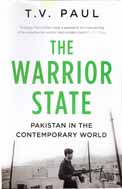
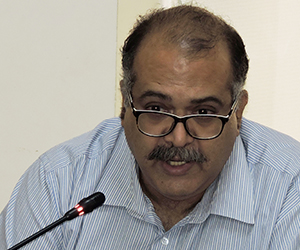

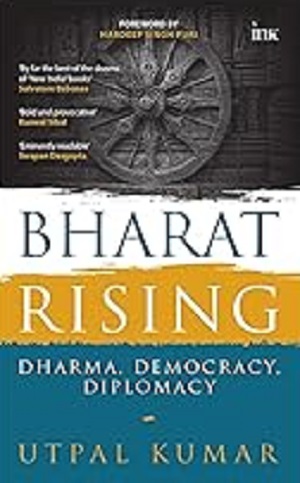
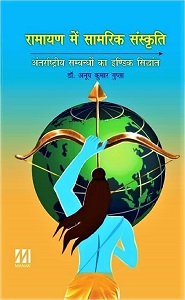
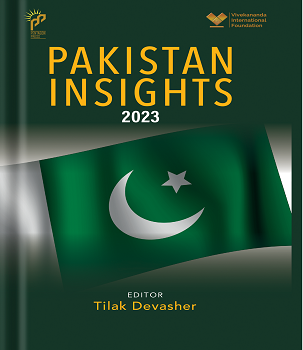
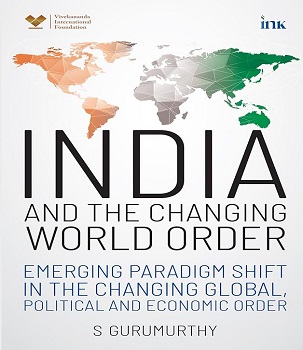
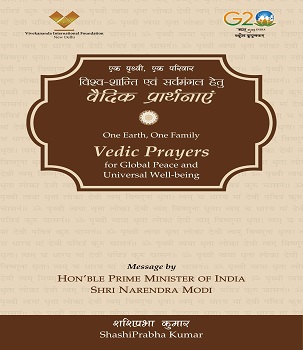
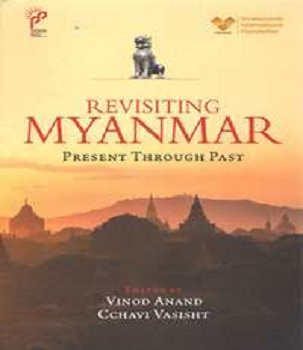
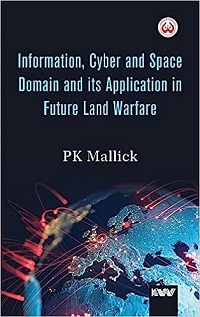
Post new comment